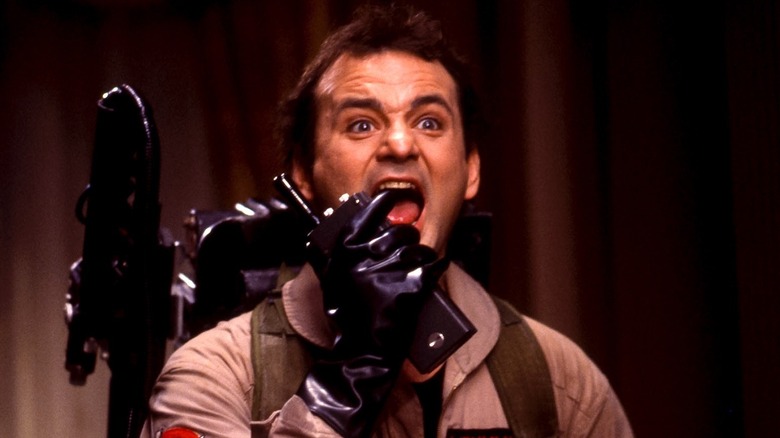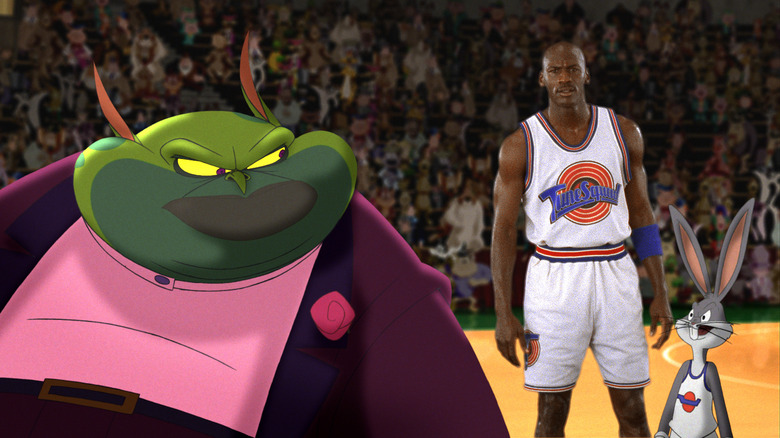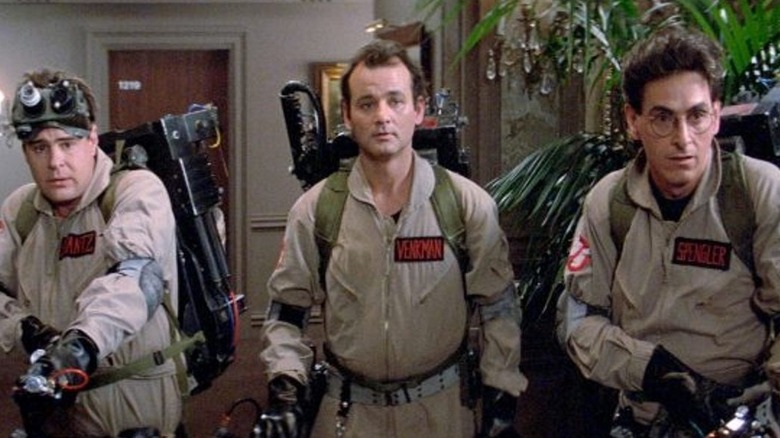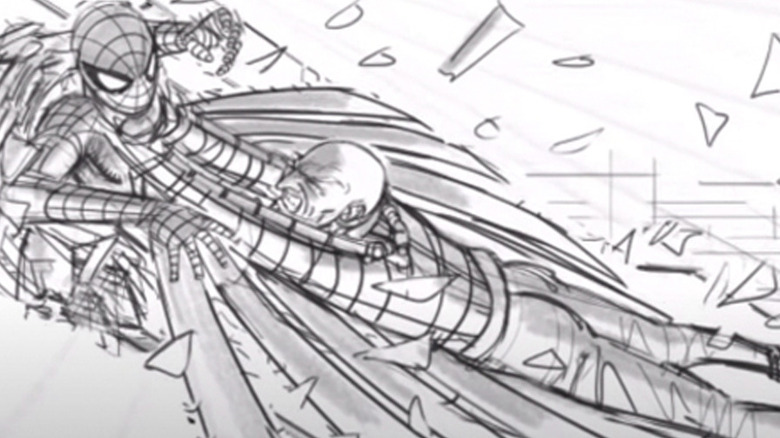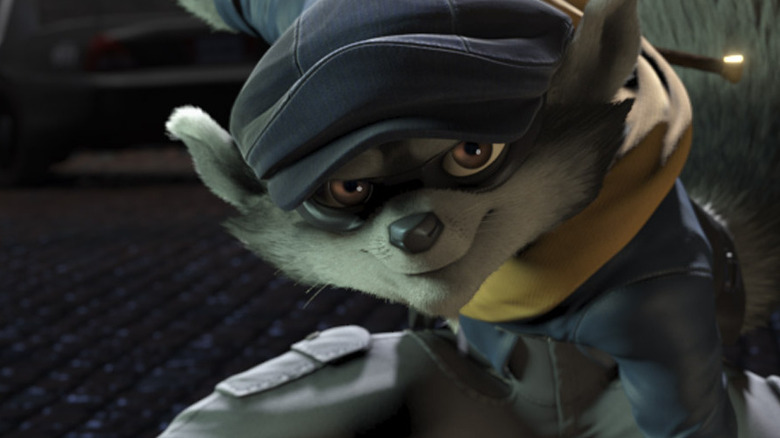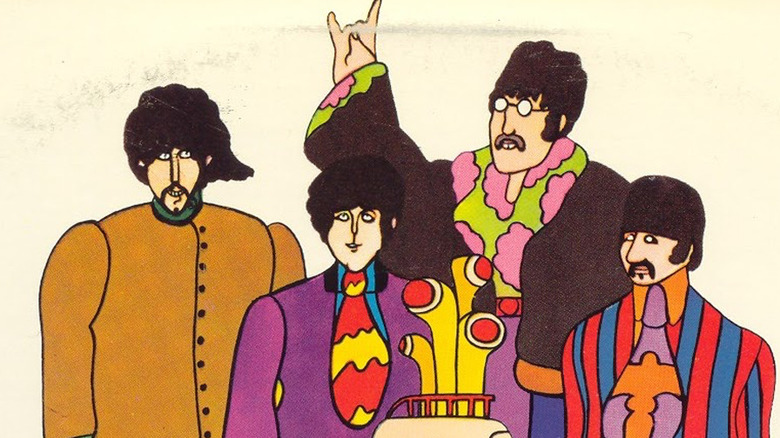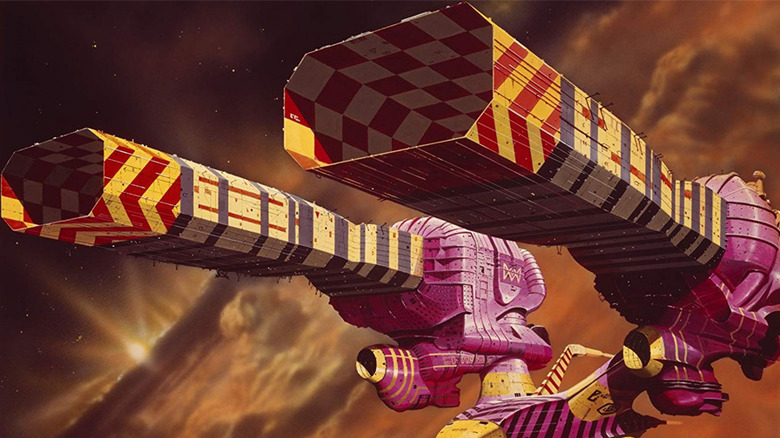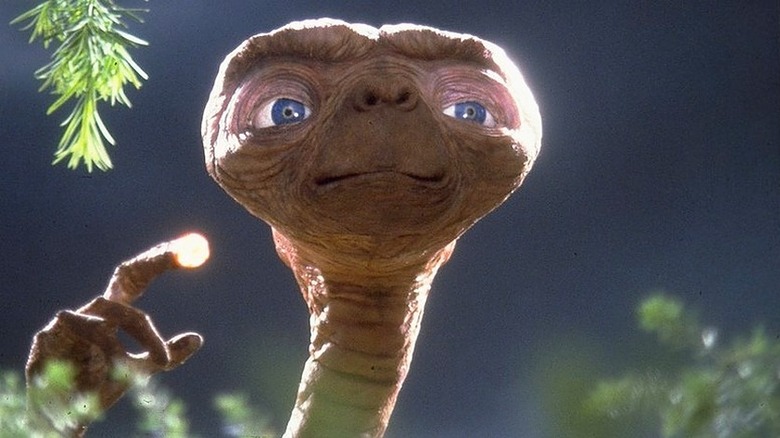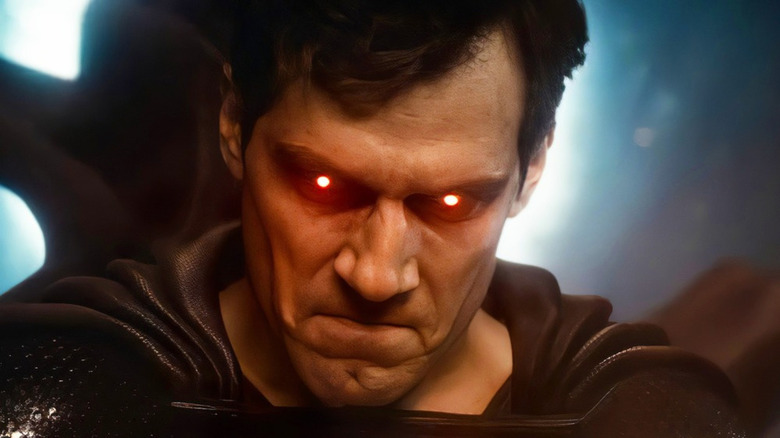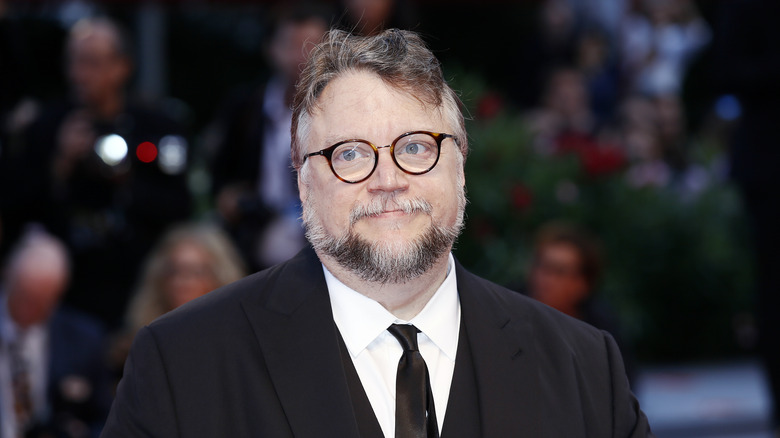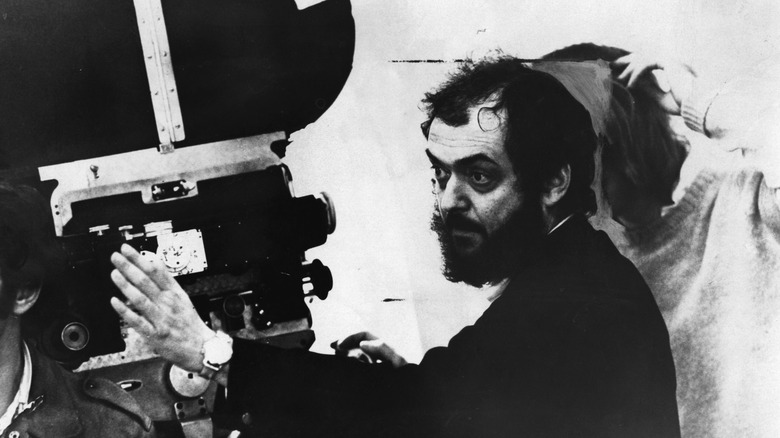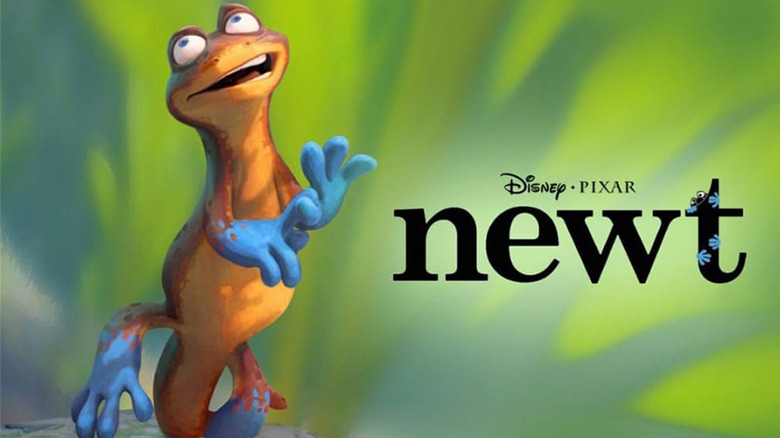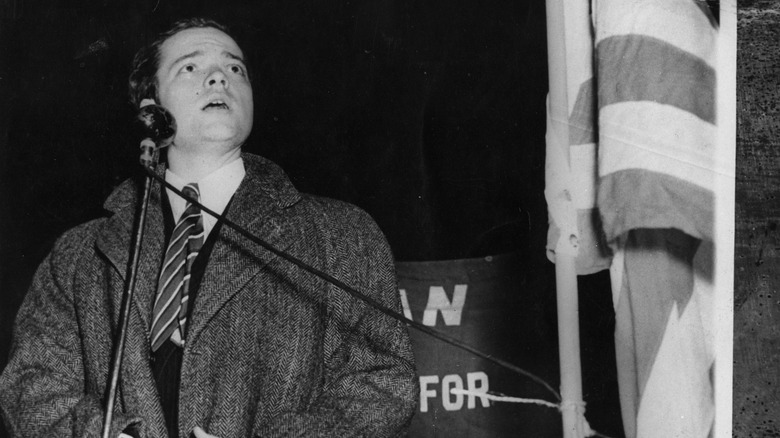Potentially Huge Movies That Never Happened
Film is a medium built on time, effort, and persistence. Just think for a moment about all the hours of work that can go into even the smallest production. Regardless of how the film turns out, good or bad, it's always impressive when a project makes it through all the hoops and hassle and ends up on the big screen. After all, many ideas never see the light of day: There are potential roadblocks at every turn in the convoluted process of producing a feature film.
Be it because of studio meddling, a lack of funding, or just plain bad luck, any film can falter — even seemingly ironclad endeavors like the passion project of an established auteur or a highly anticipated blockbuster sequel. That's a shame, because many now-canceled features arguably had the potential to become gigantic box office and critical hits if given the chance. In the case of the following films that, for one reason or another, didn't make it to the finish line, we'll never know what could have been.
All the other Space Jam sequels
"Space Jam" is a cinematic oddity if there ever was one, and a true time capsule of the '90s. The film's development arose from the preceding line of "Hare Jordan" commercials featuring both Michael Jordan and Bugs Bunny promoting Air Jordan shoes. The film was a slam dunk at the box office, bringing in $250.2 million against its $80 million budget. Naturally, a sequel seemed like the logical next move for Warner Brothers — but this is where things got complicated.
Bob Camp, best known for his work on "The Ren & Stimpy Show," was tasked with designing a new alien threat for the sequel. Sadly, Michael Jordan bowed out of the project, which was contingent on his involvement, so the second installment was shelved.
In the following years, various sequel concepts would be pitched, partially developed, and then abandoned or reshaped into something else. This includes "Spy Jam," which would have starred action icon Jackie Chan, and "Race Jam," which would have starred NASCAR driver Jeff Gordon. There were also talks about a "Skate Jam," which would have been built around world-famous professional skater Tony Hawk! Though any one of these pitches could have become a hit, none made it out of the development phase and onto the big screen. The prospect of a sequel didn't reach fruition until 2021, with the release of "Space Jam: A New Legacy" featuring LeBron James.
Ghostbusters 3: Hellbent
Talking about "Ghostbusters" online nowadays is akin to throwing a match on gasoline, but that's not going to stop us! The idea of a third installment in the paranormal comedy franchise was first conceived shortly after the release of "Ghostbusters II." The threequel, as indicated by the title, would have taken place in an alternate Manhattan known as Manhellton. This would naturally lead to the Ghostbusters taking on their biggest threat, the Devil himself! Based on some of the proposed concepts for the story, this would have been the grandest-scale "Ghostbusters" film yet.
The idea remained in limbo for many years due in part to a lack of interest from Bill Murray in reprising his role as Peter Venkman. It was eventually decided the film would respectfully pass the torch to a new team of quirky paranormal investigators rather than the original cast. While many A-list comedians were name-dropped at the time, such as Chris Farley, nothing concrete ever materialized. Mainly due to Columbia's concerns over the lackluster performance of "Ghostbusters II" and the multiple drafts of the script that failed to impress Murray and producers alike, the ill-fated third "Ghostbusters" film would enter an eternal state of, quite fittingly, development hell.
Sam Raimi's Spider-Man 4
The year was 2008, and Sam Raimi was still licking his wounds from the poor reception for "Spider-Man 3." Raimi has gone on record in years since attributing the film's critical failure to studio meddling from Sony Pictures — specifically the forced addition of Venom, a popular villain, whom Raimi didn't fully understand or want to include. Despite the third entry in the series performing well at the box office, there seemed to be little faith in a fourth. Raimi was still passionate about the project, however, and opted to move forward himself, even commissioning a screenplay and storyboards.
Illustrator Jeffrey Henderson made his artwork available online to show fans what might have been. Based on his storyboards, one of the film's main antagonists would have been the Vulture. It was Raimi's intention to reboot public perception of the more obscure character, which could have solidified him as one of the Web-Head's most ruthless enemies. Additionally, there would have been an appearance from Mysterio, potentially played by Bruce Campbell, who'd had cameos in all three "Spider-Man" films so far.
Raimi's "Spider-Man 4" would have gone to amazing and unexplored places, and we like to believe fans would have loved it. Sadly, despite the director's efforts, Sony didn't see any value in the fourth film and, in 2010, officially killed the project – rebooting the franchise instead with Marc Webb at the helm and Andrew Garfield in the starring role.
The Sly Cooper animated movie
"Sly Cooper" is one the PlayStation's most noteworthy game franchises due to its art style and stealth-based gameplay. The series focuses on master thief Sly Cooper, joined by his crew, Bentley the turtle and Murray the hippo. Pursued by Interpol's Inspector Carmelita Fox, the trio balance a life of sly thievery and globe-trotting adventure!
With a premise like that, a film adaptation sounds like a no-brainer that would lend itself quite well to the world of animation. A teaser trailer arrived in January 2014, animated by Mainframe Studios (at the time known as Rainmaker Entertainment), but that was the only thing to materialize from the potential project.
A major factor foreshadowing the project's termination was the poor box office performance of "Ratchet & Clank" in 2016. The film, also animated by Mainframe and based on a video game, only grossed $14.4 million against its $20 million budget. Following this development, word came that Mainframe was no longer involved, and the project sadly imploded from there. Despite rumblings of a television series, there have been no major updates for animated adaptations of "Sly Cooper" since.
The Yellow Submarine remake
The Beatles. A simple name for one of the most prominent and influential groups not just in rock & roll, but music as a whole. Comprised of John Lennon, Paul McCartney, George Harrison, and Ringo Starr, the group was behind some of history's most noteworthy albums and songs. In 1968, the music of the Beatles, specifically their album "Yellow Submarine," was adapted into an animated film.
The "Yellow Submarine" movie is a surreal and captivating romp that perfectly captures the absurd visuals described in the original album. Upon release, the film received rave reviews and even to this day is hailed as a landmark in the animated world. The film's legacy was so enduring that in 2009, Disney recruited Robert Zemeckis to craft a new version. This film was set to be made using the same motion-capture animation style as "The Polar Express." Unfortunately, the project was shuttered by Disney in 2011 due in part to the critical and box office disasters that were "Mars Needs Moms" and "A Christmas Carol."
Zemeckis attempted to shop the idea around to other studios, but ultimately gave up on the project in 2012. Almost a decade later, there have been no further attempts to remake the original 1960s animated classic.
Alejandro Jodorowsky's Dune
With a big-budget retelling of "Dune" fast approaching, it's important to remember the cinematic adaptation that never was. That movie would have been the biggest and most ambitious science-fiction film made up until that point, directed by Alejandro Jodorowsky — truly one of the most artistically daring and visually memorable creators in all of cinema. His most famous works, "El Topo" and "The Holy Mountain," have both been praised for violent yet surreal visuals.
Following the success of "The Holy Mountain," Jodorwosky was offered funding to helm a cinematic adaptation of Frank Herbert's "Dune." He of course accepted the offer and began work on the massive artistic undertaking. Per a lavish agreement to have his favorite chef cook throughout the production, the legendary Orson Welles signed on to perform. The visuals would have been crafted by Dan O'Bannon and H.R. Giger, most famous for 1979's "Alien." And perhaps most impressive, the film's soundtrack would have been performed by both Magma and Pink Floyd.
Unfortunately, Jodorowsky's vision proved too unfeasible for any major studio, and the adaptation rights were sold off. They were picked up by Italian producer Dino de Laurentiis, resulting in David Lynch's now-infamous adaptation from 1984.
E.T. II: Nocturnal Fears
Universal Pictures, correctly flagging "E.T. the Extra Terrestrial" as a surefire hit, approached Spielberg about a sequel shortly before the original's release. Spielberg, usually known for not doing sequels, expressed interest and developed a nine-page treatment for a follow-up. This treatment, which has been available online for years, was titled "E.T. II: Nocturnal Fears."
"Nocturnal Fears" would have followed the core cast from the original contending with another — far deadlier — alien encounter. An albino alien species, said to be at war with E.T's species, would abduct Elliot along with his friends. At the climax of the film, E.T. would return to vanquish the evil aliens and save his earthling friends. It was written to be a more mature story, a definite far cry from the family-friendly nature of the original. This is evident in the film's treatment, which describes the alien's horrific treatment of the kids, especially poor Elliot!
Eventually, Spielberg returned to his original stance against sequels and opt not to pursue any follow-up to "E.T." It's fair to say that, if released, "E.T. II: Nocturnal Fears" would have been a profitable Hollywood sequel. However, based on the film's bizarre plot and tone, it's debatable as to how well the film would've been critically received.
Justice League: Mortal
While fans are undoubtedly glad "The Snyder Cut" finally made it to screen, there is one "Justice League" film that no one will ever see! Back in 2007, just before the rise of the Marvel Cinematic Universe, Warner Bros. and DC Comics was attempting something big.
WB set their sights on husband-and-wife duo Michele and Kieran Mulroney to pen a massive "Justice League" film. The undertaking was meant to pave the way for sequels and various spin-offs for individual heroes. The script was completed and the studio quickly put the wheels in motion to find a director up to the task. After much searching they would eventually sign on George Miller, director of the "Mad Max" franchise. Production ultimately made it to the casting phase, where young actors chosen to give new life to DC's legendary characters. Some of the names chosen were D.J. Cotrona as Superman, Armie Hammer as Batman, and Adam Brody as The Flash.
Sadly, the production experienced numerous delays and setbacks, due mainly to the 2007-2008 Writers Guild of America strike. Additionally, a discrepancy between WB and the Australian government regarding an incentive tax rebate for film production only compounded matters further. After "The Dark Knight" took the world by storm in 2008, "Justice League: Mortal" was officially scrapped.
Guillermo Del Toro's At the Mountain of Madness
How many times can you be told no before it's finally time to throw in the towel for good? Well, if you're Guillermo del Toro, you might be so utterly dedicated to your vision that you'll never give up! Del Toro is best known for creating lavish settings and otherworldly creatures that nearly defy description. This is most evident in films like "Pan's Labyrinth" and both of his live-action "Hellboy" movies: He's been making visionary films for decades.
H.P. Lovecraft's "At the Mountain of Madness" is the tale of a group of explorers stranded in the Antarctic who are slowly picked off one by one by what slowly reveals itself to be an otherworldly terror. It's not surprising that del Toro fought long and hard to helm the adaptation of such a horrific tale. The pet project was announced over a decade ago, but since then nothing has materialized — much to the disappointment of Guillermo del Toro. The eventual cancellation of the project stemmed from a few factors, most notably disputes over the film's rating. While Universal Studios was dead-set on a PG-13 rating, del Toro stuck to his guns and continually pushed for a rated-R film!
Del Toro has gone on record saying the MPAA rating issue was the ultimate death blow for the project. That's too bad: It could have been another mystical favorite.
Stanley Kubrick's Napoleon
Stanley Kubrick is a name synonymous with both cinematic brilliance and problematic genius. Kubrick was a master of pushing the art of cinema to its most absurd conclusions, and to great results. On the flip side, he was known for an often harsh attitude when directing his films, especially toward his actors.
For all his legendary work, Kubrick wasn't always successful with his cinematic undertakings. Case in point: his most notable canceled film "Napoleon." After wrapping on "2001: A Space Odyssey," Kubrick looked to direct a sizably-budgeted film about Napoleon Bonaparte. Kubrick had an active fascination with the historical figure, going back to his early childhood. Obsessed with making the film as accurate as possible, Kubrick insisted on watching every previous Napoleon film available. He also bizarrely replicated Napoleon's real-life diet to fully immerse himself in Bonaparte's habits and mindset. The film, much like Kubrick's other works, would have been predicated heavily on immense detail, from the sets to the costumes.
Sadly, due to the prohibitive costs of shooting on location, as well as the box office disappointment of 1970's "Waterloo," the project was scrapped: a sad end to what could have been one of the greatest period war films and character studies ever put to celluloid.
Pixar's Newt
Pixar is one of the most successful names in mainstream animation, and it's impossible not to see why. With films like the "Toy Story" quadrilogy, "Finding Nemo," "Up," and countless others, the company has captivated countless children and adults. But there is one Pixar project that was apparently immune to the studio's magic.
The film "Newt" would have concerned the last remaining male and female blue-footed newts, a duo forced together to repopulate their species with the only hitch being that they can't stand each other. Clearly, the project had lots of potential for comedy and heart. However, the film's development remained very stagnant in the years following its 2008 announcement, and a few years later, it was officially announced that "Newt" had been scrapped by Pixar, making it the only Pixar film in its history to be announced and later canceled.
Of course, as former Pixar President Ed Catmull notes, most of the company's films "suck" initially, and are then developed from a wacky idea into something memorable and heartwarming. But there are rare exceptions, and it's unclear what the true death blow was for "Newt" because there are actually several likely answers. The most likely reason is the film not reaching a satisfying state in development and its similarities to another animated film at the time, "Rio."
Orson Welles' Heart of Darkness
The storied legacy of Orson Welles will always have you wondering how much of it is actually true. From his "War of the Worlds" radio broadcast to "Citizen Kane," Orson Welles has left an indelible mark on history. His rise to prominence couldn't be described as anything other than meteoric, and in 1939 he sought to capitalize on it. That year he walked into RKO Pictures with a 174-page screenplay for a cinematic adaptation of "Heart of Darkness." The film, based on the Joseph Conrad novel, would have likely been a revolutionary film if it had been produced.
The subject matter alone — war, violence, human nature — would have shocked general audiences in the early 1900s. Sadly, while Welles had immense passion for the project, RKO wasn't willing to invest in a project of that scale, especially one infused with political undertones. The project was scrapped in favor of Welles' more feasible film, "Citizen Kane."
Orson Welles' vision for "Heart of Darkness" saw an eventual posthumous release as a radio drama in 2014, but it's a shame we never got to see what a classic the film adaptation might have become.
